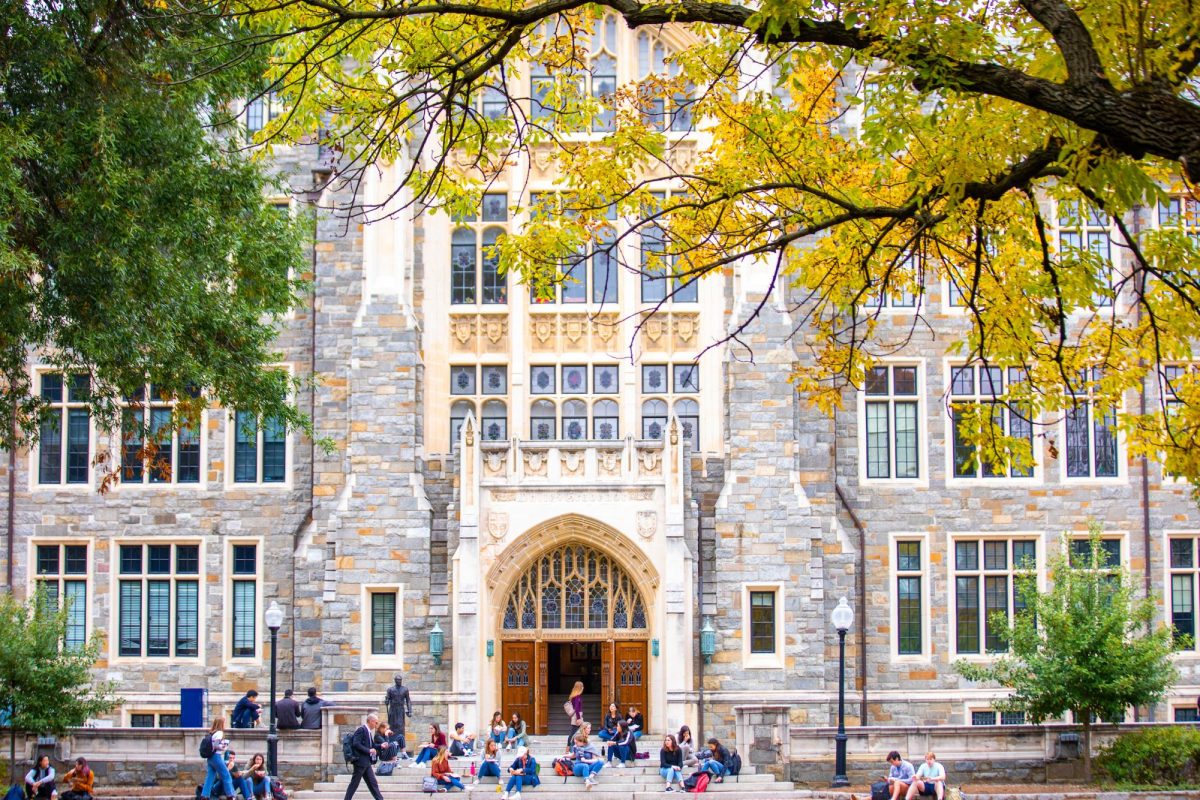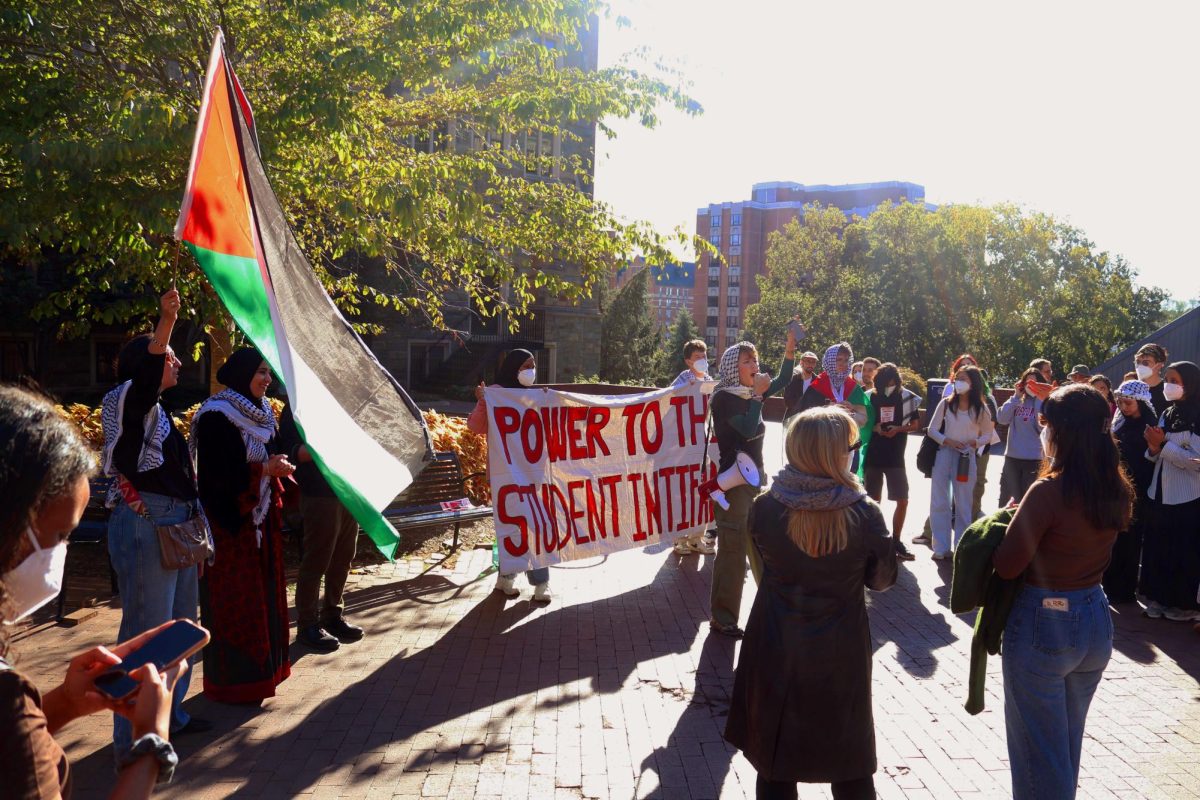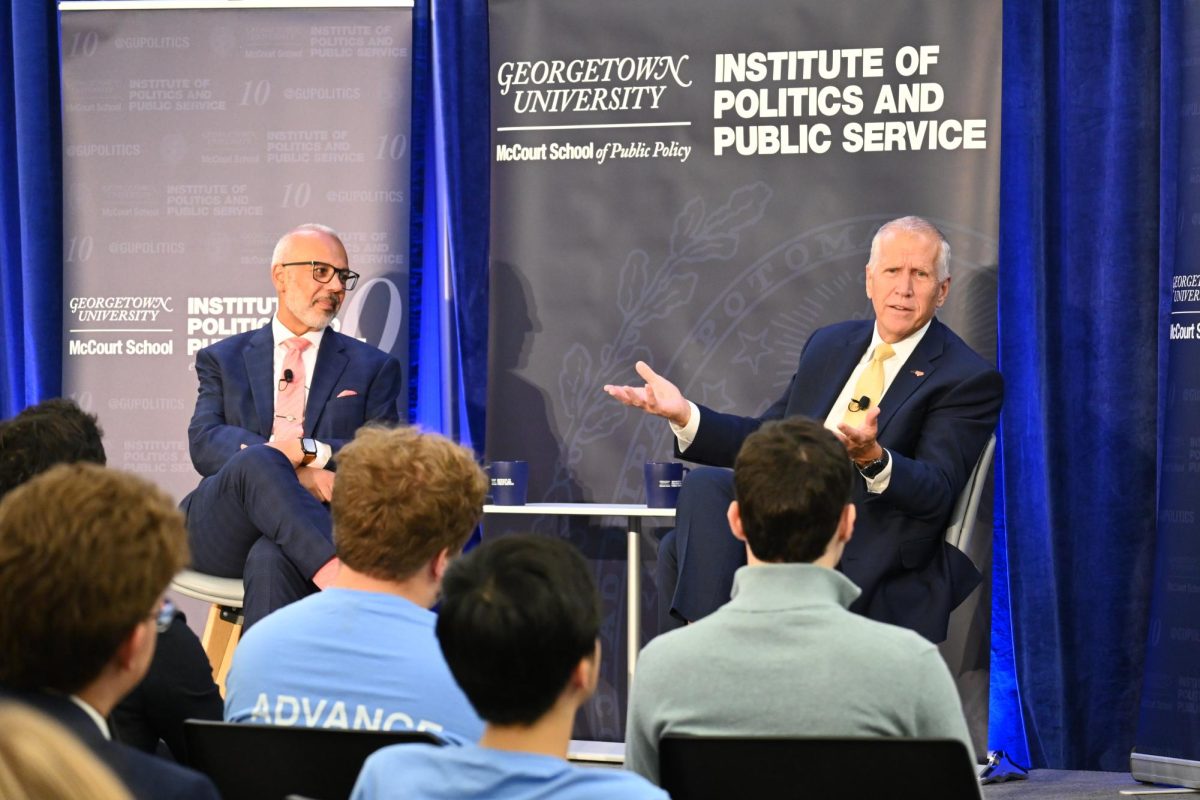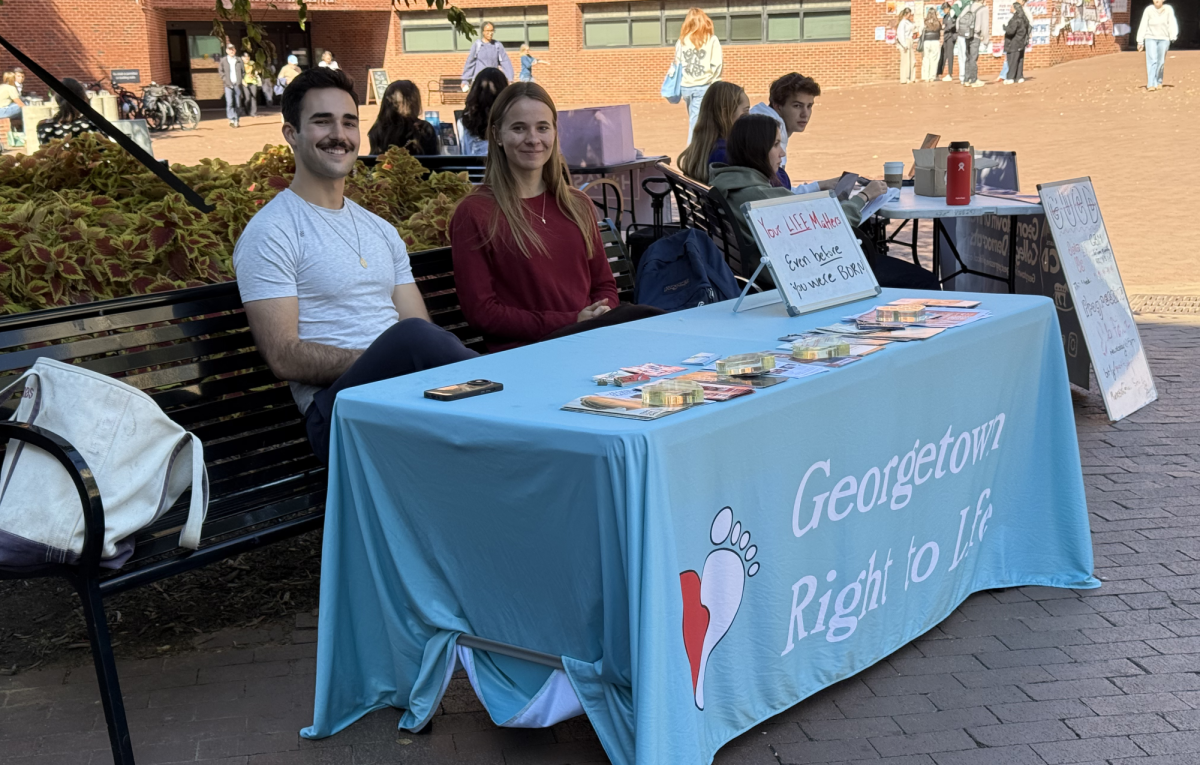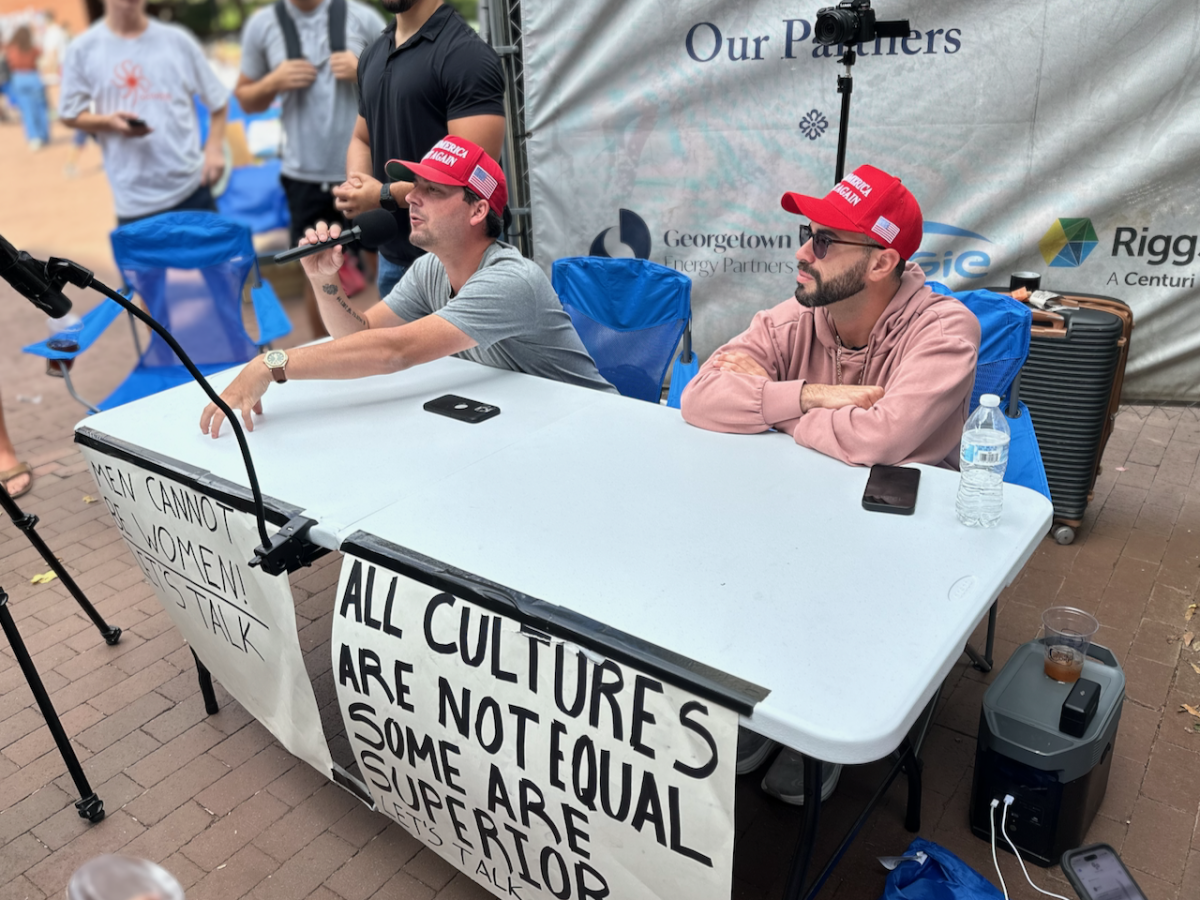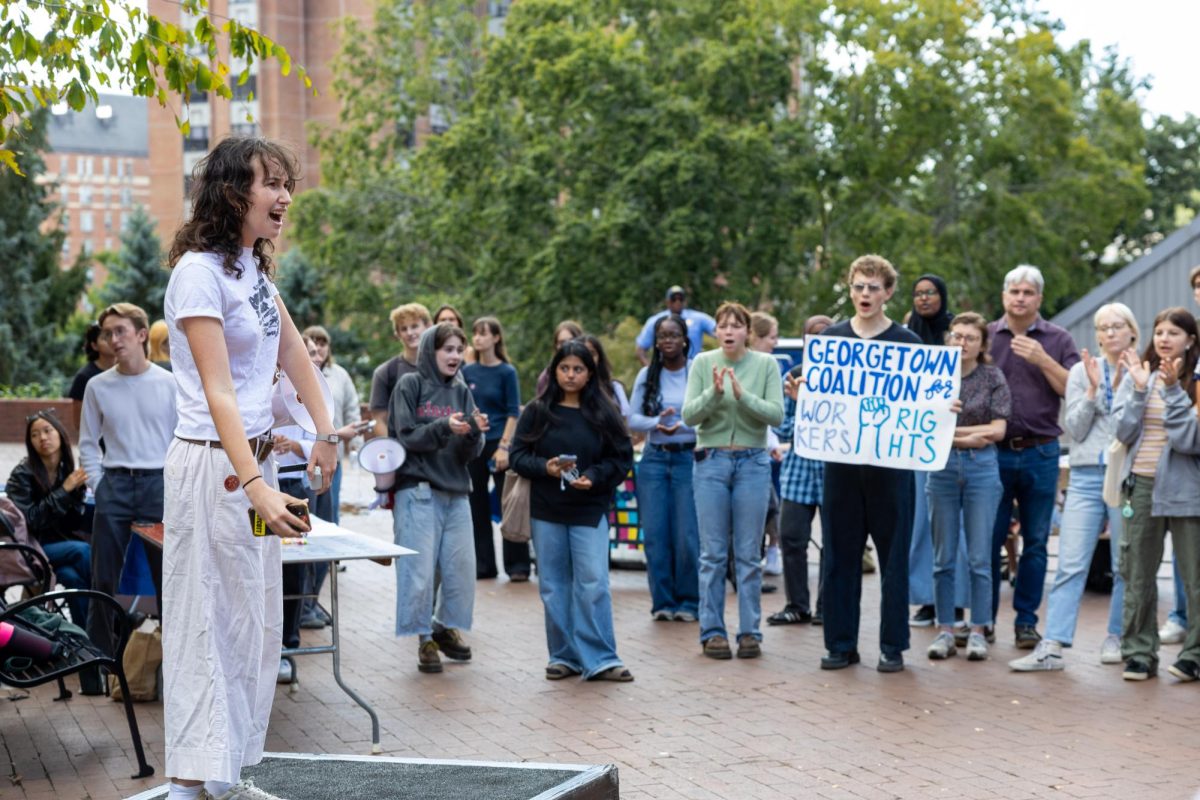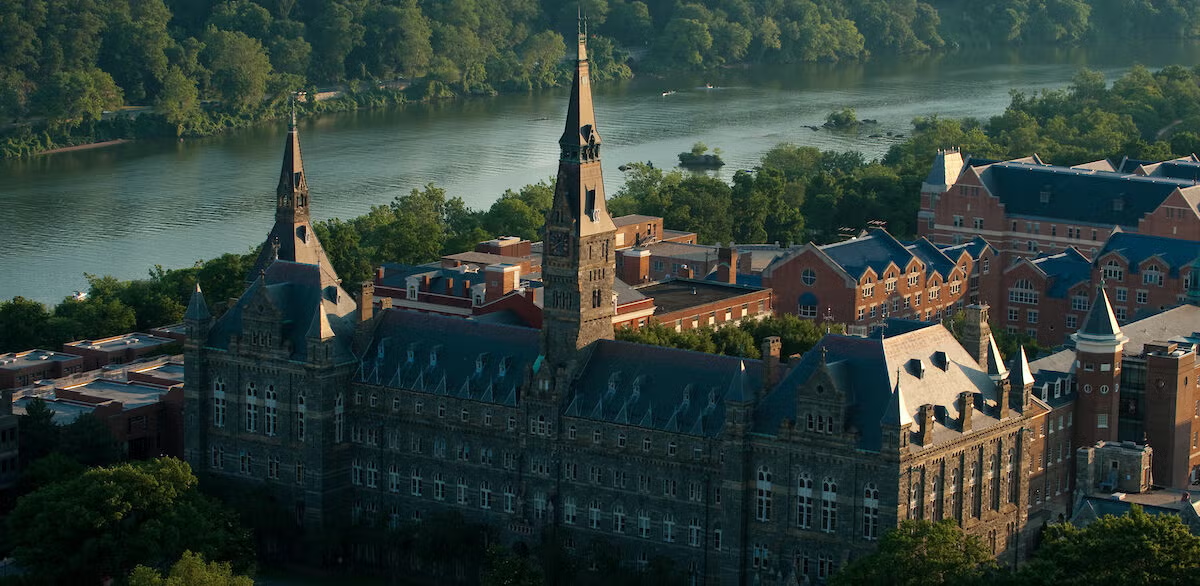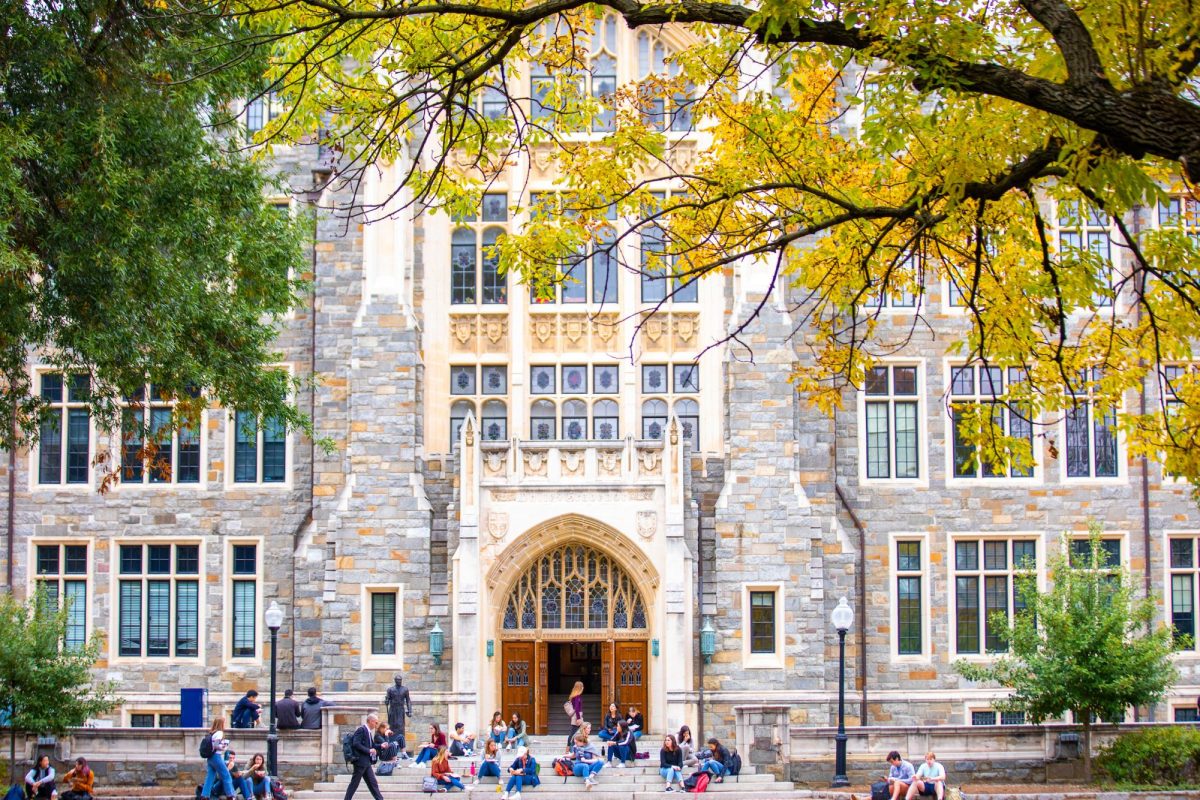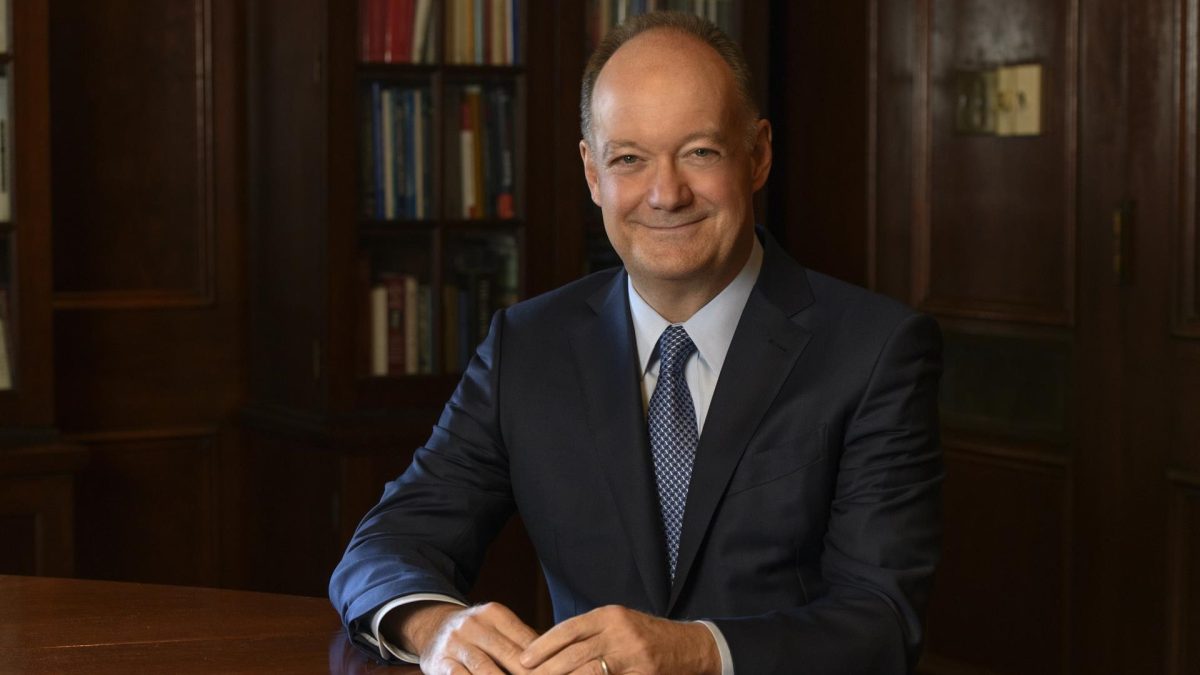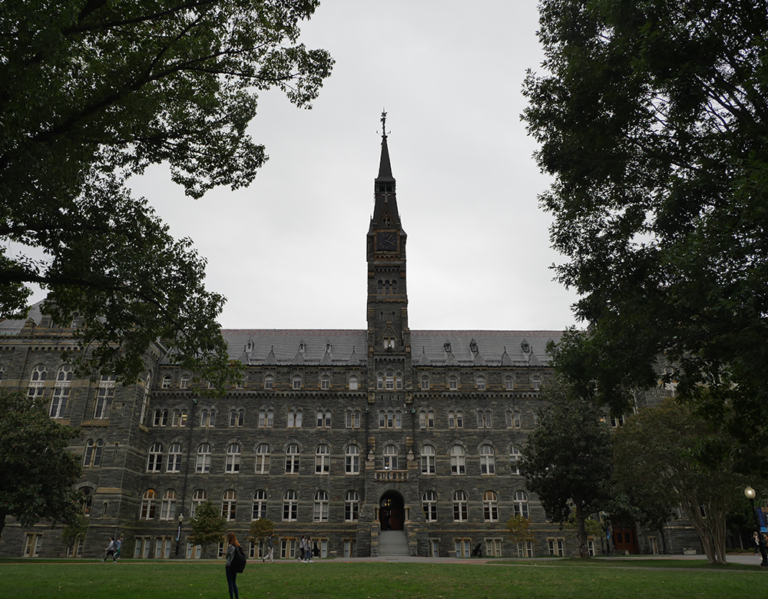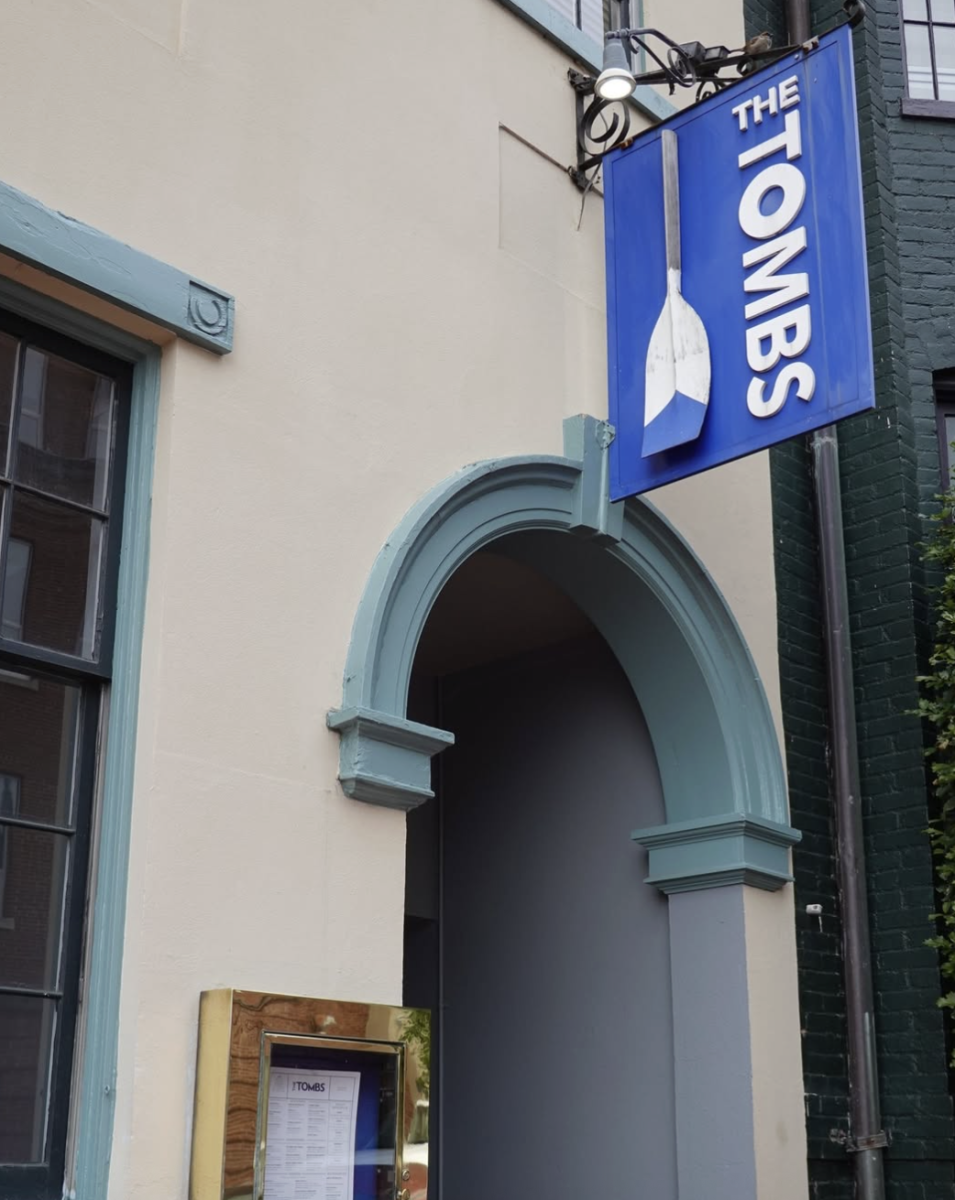A Georgetown University faculty group organized a vigil Sept. 11 to commemorate children killed in Gaza and petition the university to hold town halls discussing the humanitarian crisis.
About 50 community members attended the vigil, during which members of Faculty and Staff for Justice in Palestine (FSJP), a group advocating for Palestinian liberation, spent nearly 30 minutes reading names from the list of the over 20,000 children killed in Gaza since Oct. 7, 2023. The petition, which has gathered several hundred signatures from the university community, calls on interim university president Robert M. Groves to hold town halls regarding Georgetown’s response to the ongoing war.
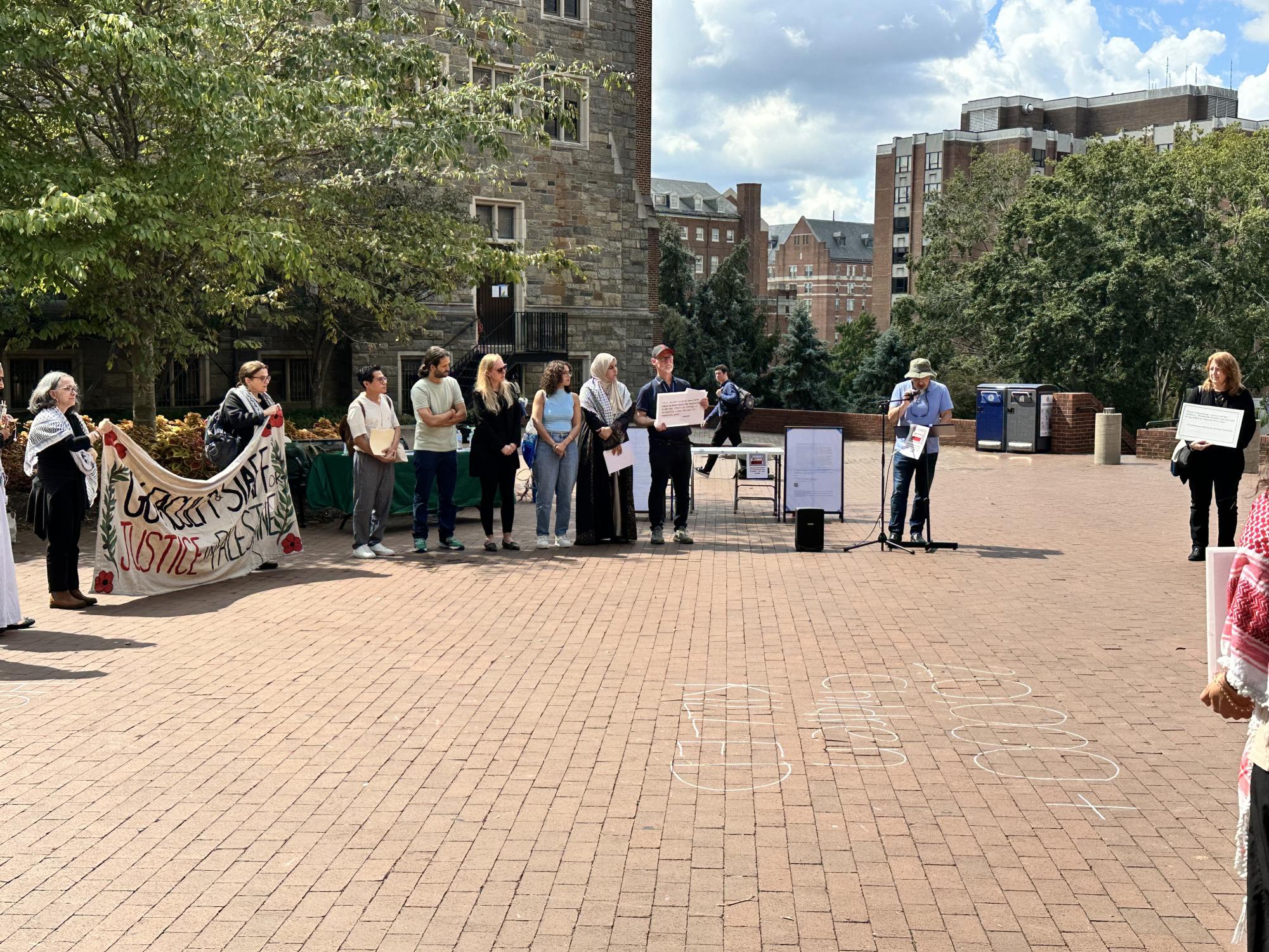
Nader Hashemi — director of the Alwaleed Bin Talal Center for Muslim-Christian Understanding (ACMCU), an academic center that aims to foster interreligious dialogue — said those at U.S. universities should recognize U.S. connections to the conflict.
“What’s unique about this particular genocide that we are protesting is, number one, it’s happening in real time,” Hashemi said in a speech at the vigil. “It happens when we go to sleep. It happens when we wake up in the morning. And secondly, this genocide is backed by most Western liberal democracies, especially, and in particular, the United States of America.”
“The framing of this war that you read in the mainstream media is that this is a Israel versus Hamas war, but objectively speaking, this is actually a U.S. war against the population of Gaza,” Hashemi added. “The airplanes, the drones, the weapons are all made in the United States. It’s simply Israeli pilots and drone operators who use those armaments. Without American support, there would not be a genocide in Gaza today.”
A growing body of scholars and advocates have accused Israel of genocide in its war against Hamas in Gaza, including the leading academic association of genocide scholars and Israel’s top human rights group. Israel has consistently denied claims of genocide, often characterizing such claims as antisemitic or anti-Israel. The International Court of Justice, which rules on genocide cases, has not yet made a ruling in a case brought against Israel by South Africa.
During speeches, FSJP members said they will hold weekly vigils to continue reading the names of children killed in Gaza.
Nardien Sadik (LAW ’27), who traveled from the Capitol Campus to attend the vigil, said she wanted to publicly display her support for the cause.
“There’s strength in numbers,” Sadik told The Hoya. “Showing up, showing your face, showing that you are not alone in your anger towards this genocide is deeply important. And I think hearing the names and humanizing them and individualizing the atrocity is another way to just give them back a little bit of dignity.”
The petition, addressed to Groves, interim university provost Soyica Colbert Diggs and Georgetown’s Board of Directors, says the signatories want Groves to immediately host a town hall meeting.
“As members of Georgetown University, we are deeply shaken, angered, and outraged by the carnage we have witnessed over the past 23 months,” the petition reads.
“Will you, Interim President Groves, lead the university to stand on the right side of history, or bring shame to Georgetown’s name by staying silent while Gaza is obliterated?” the petition adds. “We respectfully demand that you immediately organize a town hall to discuss how Georgetown University will respond to this ongoing genocide.”
A university spokesperson did not immediately respond to a request for comment.
A university spokesperson previously said Georgetown is committed to its Speech and Expression policy in reference to April pro-Palestine protests on campus.
“Georgetown’s long-standing Speech and Expression policy protects the right of members of our community to free expression, dialogue and academic inquiry,” the spokesperson wrote to The Hoya. “We respect the rights of members of our community to express their personal views and are committed to maintaining the values of academic freedom and serving as a forum for the free exchange of ideas, even when those ideas may be controversial and objectionable to some.”
Zadie Weaver (CAS ’28), who was walking through Red Square when she decided to join the vigil, said she hopes Georgetown students pay more attention to campus activism.
“I know Georgetown students are very busy, but we have Red Square, we have this historic place of free speech and demonstration, and regardless of what side you’re on, regardless of where you are in the political spectrum, or what you believe, you at least take the time to stop and listen to what people are saying and listen to the other side,” Weaver told The Hoya.
Sarah McNamer, an FSJP member who attended the vigil, said she thinks Georgetown’s Jesuit mission lends itself toward addressing the crisis in Gaza.
“Georgetown’s core mission has to do with being men and women for others, for being actively engaged in the pressing moral issues of our times,” McNamer told The Hoya. “It seems that Georgetown, in particular, as a Jesuit university, has an obligation to be speaking out against this genocide, because to be in denial about it, to be staying silent about it, is to accept it.”
Elliott Colla, a Georgetown Arabic and Islamic studies professor who attended the vigil, said pro-Palestinian activism must go beyond words.
“I know how exhausting it is to grasp the scale of these crimes in a moral framework that values human life and Palestinian life in a universal way, to admit that a genocide is happening and that our leaders and institutions have a hand in,” Colla said in a speech at the vigil. “It means that we have an obligation to act, not just to condemn the crime of genocide with words, but to stop it however we can with deeds.”
Laurie King, an anthropology professor who is a member of FSJP, said she hopes more people take action both on and off campus as international outcry against the humanitarian crisis in Gaza grows.
“With so many reputable, international, Israeli, U.S. organizations and human rights bodies coming out to say that this is a genocide, that might actually inspire more people who haven’t yet taken up any kind of activism or advocacy mantle to do so,” King told The Hoya.
Hashemi said Pope Francis’s empathy for Gaza points to university intervention considering Georgetown’s Catholic identity.
“The late Pope Francis called the beleaguered Christian community in Gaza every night before he went to sleep, recognizing a reality that stares us in the face, that Gaza is the preeminent moral issue of the 21st century,” Hashemi told The Hoya. “So what does it mean to be at a Catholic institution that claims to uphold Jesuit values, that claims to sort of meld and use faith to inspire justice in the context of an actual genocide that’s happening with American tax dollars? We can’t ignore this. These can’t be just words.”








